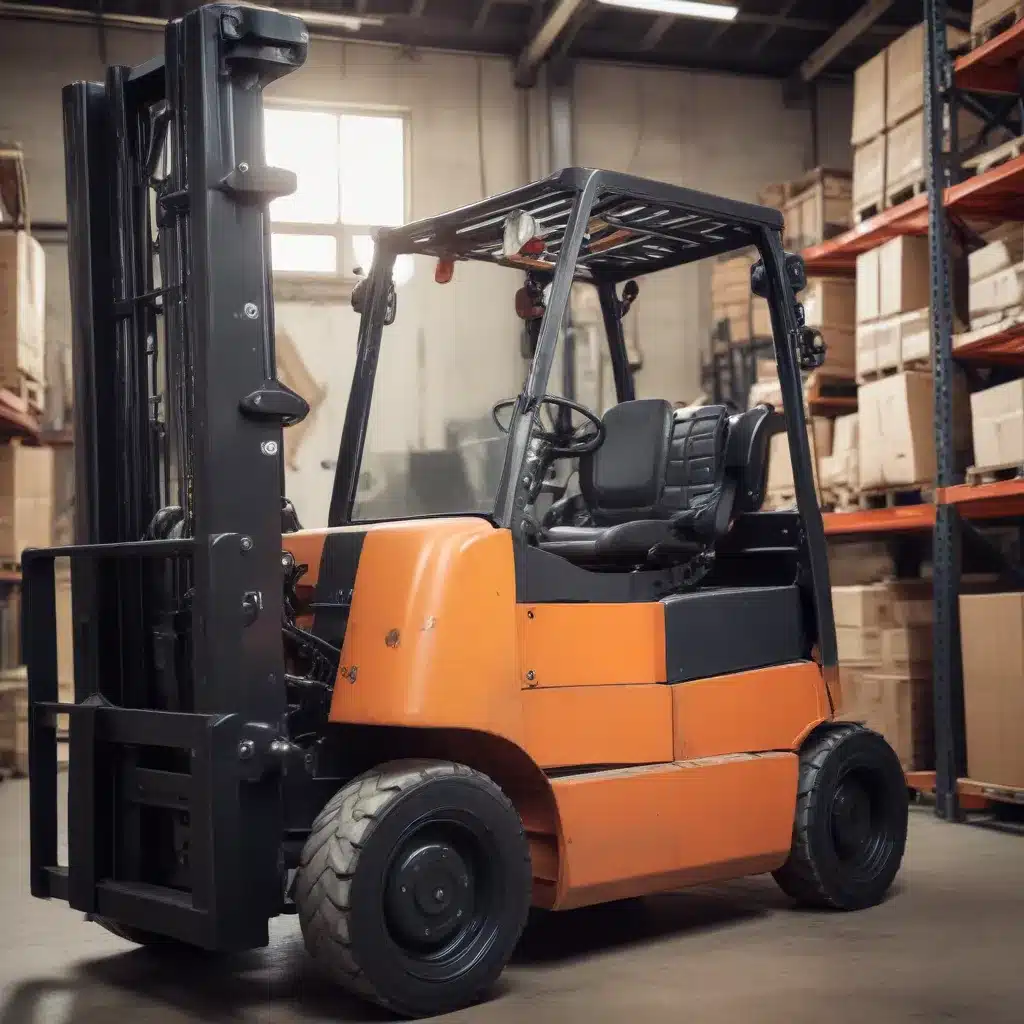
The Changing Landscape of Warehouse Maintenance
The world of warehousing and logistics is rapidly evolving, and with it, the demands placed on maintenance technicians. As warehouses embrace the latest technologies, including robotic systems and automated machinery, the role of the maintenance professional has become increasingly complex and multifaceted.
Gone are the days when a forklift mechanic’s primary responsibilities revolved around repairing and servicing traditional equipment. Today’s maintenance technicians must be adept at maintaining an array of sophisticated systems, from conveyor belts and robotic arms to computer-controlled inventory management software. This shift in the industry has created new and exciting career paths for skilled maintenance professionals who are eager to embrace change and evolve with the times.
The Rise of Automation and the Demand for Maintenance Expertise
The growth of the warehousing and distribution industry has been fueled by the increasing adoption of automation and robotics. Warehouses are now relying on these advanced systems to streamline operations, improve efficiency, and reduce the risk of human error. As a result, the demand for maintenance technicians with the expertise to keep these complex systems running smoothly has skyrocketed.
Maintenance technicians in the warehousing and logistics sector are no longer just repairing conveyor belts and forklifts. They are now responsible for maintaining a wide range of automated systems, including robotic arms, computerized inventory management software, and even autonomous material handling equipment. This shift in the nature of maintenance work has created new opportunities for career advancement and specialization, with many technicians aspiring to roles in controls or mechatronics – positions that combine mechanical, electrical, and computer-based skills to troubleshoot and optimize automated systems.
Adapting to Technological Advancements
The rapid pace of technological change in the warehousing industry has placed a greater emphasis on the adaptability and continuous learning of maintenance technicians. These professionals must be comfortable with evolution and embrace the challenge of staying up-to-date with the latest advancements in their field.
“In distribution & logistics, maintenance technicians need to be comfortable with evolution and change,” explains Grant Brindle, Aerotek’s Sales Practice Lead. “They need to be excited by it because things are changing so quickly. It’s not just about forklifts placing boxes on a truck. Robotic arms and computer systems are becoming more common.”
To meet the demands of this evolving landscape, maintenance technicians must be proficient not only in traditional mechanical and electrical skills but also in digital and computer-based troubleshooting. They are now required to use tablets and specialized software to diagnose and resolve equipment malfunctions, requiring a deeper understanding of the underlying technology.
Advantages of Warehousing Maintenance Roles
While the demands placed on maintenance technicians in the warehousing and logistics sector have increased, the work environment and opportunities for advancement can be particularly appealing to skilled professionals.
Warehousing maintenance roles often offer less stressful working conditions compared to other industries. In industries such as food and beverage or pharmaceuticals, the consequences of equipment failure can be far more severe, potentially leading to the loss of valuable or perishable products. In contrast, warehousing companies are typically more focused on preventing delays and minimizing downtime, without the same level of urgency or regulatory complexities.
Additionally, the maintenance schedules in warehousing can be more flexible, allowing technicians to have a more balanced work-life dynamic. “Food and pharma both have stringent standard operating procedures,” Brindle notes. “Every time you switch product lines, you have to go through an aseptic cleaning process. This adds a level of complexity to the role.”
Embracing New Advancement Opportunities
As the warehousing and logistics industry evolves, maintenance technicians are finding new paths for career growth and development. Traditional opportunities for advancement, such as management or supervisory roles, remain available; however, the rise of automation and robotics has also created a new and highly sought-after position: controls or mechatronics technician.
“The position being created by the increase of robotics and automation is controls or mechatronics,” Brindle explains. “It’s almost like an engineering position that technicians can work towards. It involves more desk work than other roles. You’ll be troubleshooting and fixing errors remotely, so it’s a good option for a broad range of workers.”
This specialized role combines mechanical, electrical, and computer-based skills, allowing maintenance technicians to transition into a more technical and analytical position. As warehouses continue to automate their operations, the demand for these highly skilled professionals will only grow, presenting maintenance technicians with exciting opportunities for career advancement and increased earning potential.
Maintaining a Competitive Edge
To thrive in the evolving warehousing and logistics landscape, maintenance technicians must be proactive in their professional development. Continuously updating their skills, staying informed about industry trends, and embracing new technologies are essential for maintaining a competitive edge.
By embracing the changes in their field and actively pursuing opportunities for growth, maintenance technicians can position themselves for long-term success and rewarding careers. The warehousing and logistics industry offers a unique blend of challenges and benefits, making it an attractive option for skilled professionals who are eager to be at the forefront of technological advancements.
As warehouses continue to modernize and automate their operations, the role of the maintenance technician will only become more critical. By adapting to these changes and honing their expertise, these professionals can play a vital role in supporting the efficiency, productivity, and future success of the warehousing and logistics sector.

